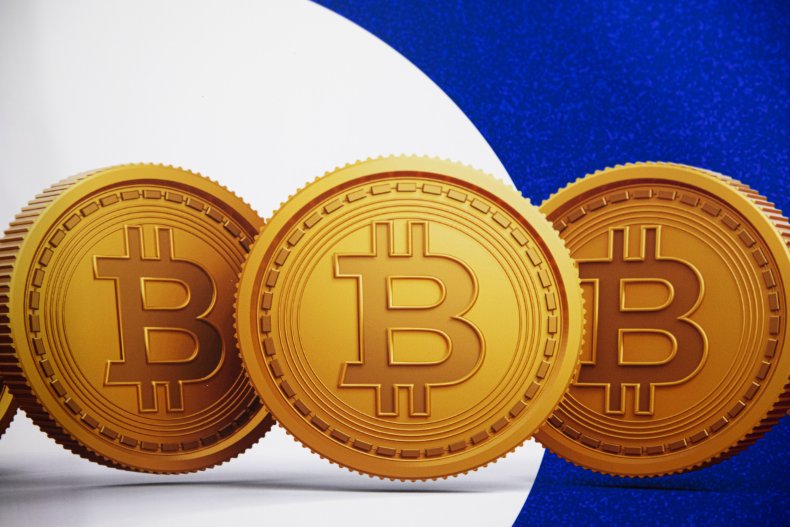Bitcoin, the largest cryptocurrency by market value, recently fell more than 72 percent since its November high.
In a survey conducted by Crypto Literacy in November 2021, 98 percent of respondents lacked a basic understanding of crypto concepts. However, during this same period, the global crypto market cap surged to a record $3 trillion as both institutional and retail investors allocated significant capital to cryptocurrency investments. Not only did big banks and full-time traders begin investing, but so did our neighbors, co-workers, and most importantly, young adults.
Simply put, while crypto has found a home in pop culture and the headlines, it has also developed into an emerging asset class and investment tool for millions. Yet, it remains unregulated and like all financial instruments it can present a risky proposition. Although political leaders are engaging in discussions on consumer protection efforts, crypto education for school-aged learners is not part of the agenda—despite data showing that younger generations and Black Americans are more likely to purchase crypto.
Low- to Moderate-Income Communities Are Most At Risk. Again
Per the National Financial Educators Council, only 68 percent of Americans are financially literate—growing a mere eight percentage points since 2014. Consider this with the fact that 26 million Americans are credit-invisible, and a quarter are financially fragile. Unsurprisingly, those from more affluent households understand the basics of saving, investing, and money management better than those who live in low- to moderate-income communities. We must do better, and now we have a unique opportunity to advance and democratize crypto education for all.
 A poster with the Bitcoin logo is on display. Lauren DeCicca/Getty Images
A poster with the Bitcoin logo is on display. Lauren DeCicca/Getty Images
At the school level, there are an increasing number of unfunded mandates to educate students on the ever-changing financial system and to engage young learners on topics related to personal finance. Twenty-seven states have introduced nearly 70 pieces of legislation this year, trying to add personal finance to the core curriculum. This is a move in the right direction, but when will we educate students, who can start investing in cryptocurrency at 18, on how to navigate this space safely and make informed decisions?
Complex and Evolving Financial Systems Are Here to Stay
Despite the recent volatility in crypto markets, cryptocurrency and the blockchain technology powering these ecosystems will remain with us. They will continue to play a meaningful role in our lives, from job opportunities to investment vehicles, for decades to come.
The concepts and technology behind crypto are not only making their way into traditional banks and financial institutions. Major retailers like Home Depot and Overstock.com have accepted cryptocurrency as payment; President Joe Biden has ordered the Treasury Department to explore the possibility of creating a digital dollar; and major companies like IBM have even developed their own blockchain products and services.
In other words, just as the dot-com crash did not result in the end of the internet, the current volatility in the crypto market does not signal the end of the underlying ideas and technology.
Education Is the Answer and Equalizer
The rapid advancement and adoption of crypto and blockchain technology has created an urgent need for an engaging and interactive learning experience. Every student in our country requires and deserves this education to make better life-long decisions. As the government debates legislation to create regulatory guardrails that protect investors and consumers from fraud and other harms, education remains the most powerful tool to help individuals protect themselves.
The crypto-economy could be the spark that excites and engages the next generation in their financial future: attracting those who have historically lacked access to, or interest in, the traditional financial system and ultimately allowing communities to grow wealth and build independence. It could also have the opposite effect: exposing communities and investors to exploitative practices or enticing them to take on more risk than they should with possibly dire consequences.
Just like the stock market, crypto may not be the right investment vehicle for everyone, but being an informed consumer is critical to both lay the foundation for financial independence and give students the tools to make better financial decisions. Yet, our country’s current deficit of widespread financial education perpetuates the cycles of debt and poverty and reduces the opportunity for upward socio-economic mobility and a secure future, especially for those living in under-resourced communities.
Let’s use education to empower the next generation to protect themselves, participate in the digital economy, and be better set up for lifetime success. To do that, we can’t solely focus on the lessons of yesterday or even those of today. We must also prepare students for lessons of tomorrow. As political leaders debate ways to protect consumers from potential cryptocurrency risks, education is the best place to start.
Ray Martinez is a financial education expert who serves on the board of the Jump$tart Coalition for Personal Financial Literacy and is the president and co-founder of EVERFI, an education technology company acquired by Blackbaud in December 2021.
The views expressed in this article are the writer’s own.



